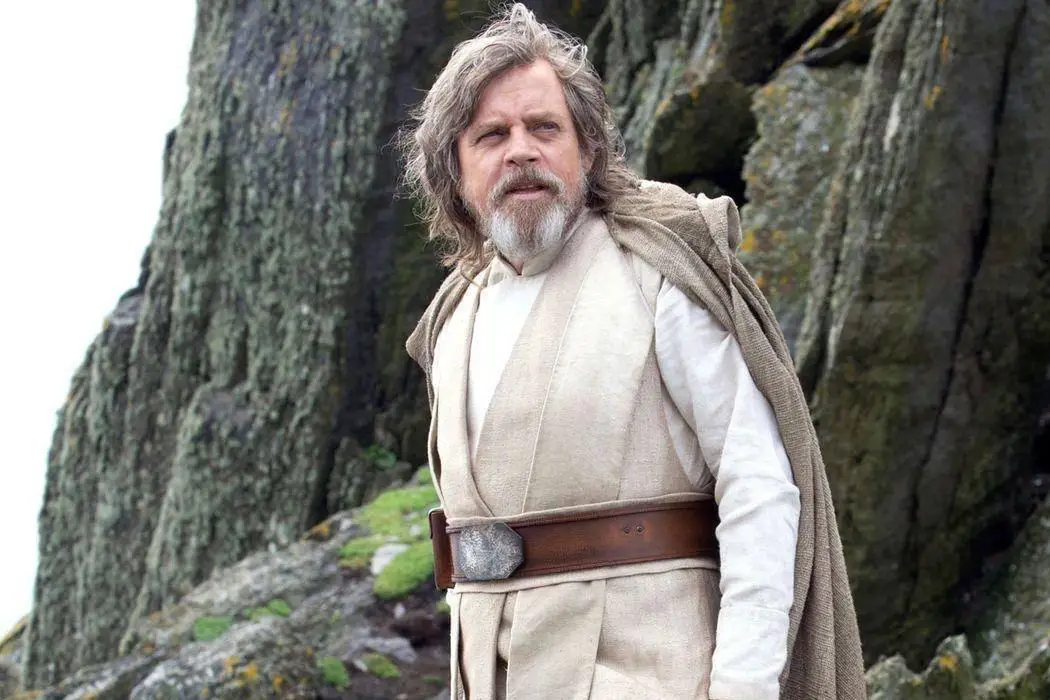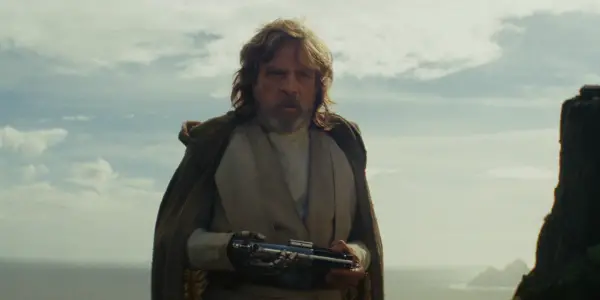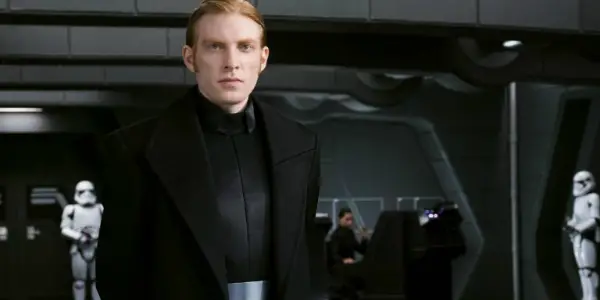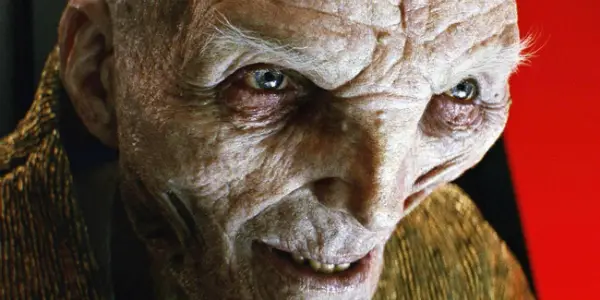Is STAR WARS: THE LAST JEDI’s Fan Backlash A Problem Of Disney’s Own Making?

Gus is a 3rd year English Lit and Creative Writing…
Star Wars: The Last Jedi was notoriously released to critical clamour and commercial anguish last month – while many critics lapped up the daring decision-making and impressive character-building (leading to a 90% approval rating on Rotten Tomatoes), many fans mourned the senseless decision-making and regressive character-tarnishing (leading to a 49% RT approval rating, the lowest of any Star Wars film – yes, including the prequels). The issue is clear: same talking points, different reactions.
Fans were even so provoked as to create a petition that lamented the destruction of Luke Skywalker’s character, and demanded the erasure of The Last Jedi from existence – calling for a new iteration of Episode 8 that would carry over his personality from the originals, or, at least, ‘redeem Luke Skywalker’s legacy, integrity and character.’ In other words, a safer repackaging.
For if there’s one thing that both fans and critics can agree on (not to suggest that critics can’t be fans too, but more that they often go into the screening with a different mindset) now the space dust has settled, it’s that for much of The Last Jedi’s (lengthy) runtime, director Rian Johnson doesn’t play it safe.

Depicting Luke as a cynic who believes that the Jedi have to end isn’t safe. Putting a stop to Snoke before his character is even established isn’t safe. Having an against-the-clock Finn and Rose subplot that results in a shaggy-dog ending isn’t safe. Which is odd, considering what has recently come before concerning films flaunting the Disney brand. This isn’t just talking about The Force Awakens, which most agree is a spruced-up A New Hope, but Disney’s ever-growing empire in general.
The Mickey Mouse Blockbuster
If the beat-for-beat live action remakes of their animated classics didn’t convince you (Cinderella, Beauty and the Beast), perhaps the repetitive structure of their superhero franchise does (I mean, the phrase ‘Marvel formula’ was coined for a reason): if Disney’s involved, then the film is more than likely going to play it safe. Everybody knows that in a Disney film, you build up the villain, lay out his motives, and..oh? Snoke’s dead? Ah.
It’s not a stretch to suggest that the mass of moviegoers are being conditioned to think a certain way when it comes to blockbusters. You see, the average blockbuster gives the pretense of bravery, sure (Pitting heroes against each other in Civil War at least seems brave…), but doesn’t truly follow through on it (…until you realise that no hero dies as a result, and the consequences are minimal/resolved towards its ending). If this is the case for every big-budget bonanza – and, concerning Disney, it largely is – then of course the companies are subliminally conveying an idea of their brand of filmmaking.
You only have to google the term ‘Disneyfication’ to understand what it’s synonymous with: tvtropes phrases it as editing ‘that renders a story “safe”’, while Merriam-Webster describes it as ‘the transformation into carefully controlled or safe entertainment”.

The Last Jedi refutes this idea of Disneyfication, and fans have reacted accordingly. This isn’t to say that every fan who dislikes Episode 8 doesn’t have a valid reason – there are many justified criticisms of Rian Johnson’s movie, such as its minimal scope in a galaxy full of potential, or its two third acts – but that many of the criticisms could be due to built-up expectations of its narrative and structure; expectations influenced by Disney’s careful, constricting control on its mass of franchises. Skywalker himself says it best: “This is not going to go the way you think”. Much of his audience didn’t listen.
Is this Star Wars…or Marvel?
Of course, you could retort with, ‘But Film Inquiry, we know that Star Wars isn’t Marvel, why would we expect what Marvel brings?’ Well, the problem is that while The Last Jedi is a giant step away from ‘Disneyfication’, that step might not yet be far enough.
For The Last Jedi still bears many similarities to Disney’s other blockbuster franchises – yes, including Marvel – that serve to almost undo Rian Johnson’s ability to dare and go beyond what a commercial audience would expect from a big-budget film. With Han Solo out of the way, the film doesn’t have a central comedic anchor, and so Solo’s smarm rubs off on almost each and every character, the comedy morphing from sarcasm to, well, Disney-fied quips (Kylo and Rey escape this fate; their storyline also happens to be, according to consensus, the most engaging).
And as almost every character chimes in with throwaway gags and mildly amusing one-liners that provide fleeting moments of humour while sapping the drama (Poe’s duping of General Hux at the film’s beginning epitomises this), the Marvel comparisons reveal themselves. However, the parallels don’t end at humour. The Last Jedi isn’t afraid to dare until it is: for example, Finn’s sacrifice-cut-short, while possessing thematic resonance, lays bare Disney’s disdain for killing off its film’s established main characters (while also not making much sense in the context of the film’s narrative).
Star Wars: Episode VIII – The Last Few Paragraphs
With the Disney parallels ingrained in the film, there’s evidence to suggest that the comparisons may have also ingrained themselves in the subconscious of the average Star Wars’ fan as they watch it. And with that comparison being synonymous with Disney’s safety-first approach to blockbusters, a certain expectation of The Last Jedi goes unfulfilled. Subverting expectations is one thing, but taking away the metaphorical safety net and denying an audience what they want from a blockbuster is something else entirely.

Of course, this article doesn’t wish to deny that The Last Jedi has flaws, nor does it wish to suggest that either critics or fans got it wrong. This article simply intends to raise the idea that maybe, just maybe, the furious backlash The Last Jedi received is a problem of Disney’s own making – that their effect on the current state of blockbusters smooths out any wrinkles and transforms the films from exciting extravaganzas to big-budget products, and as The Last Jedi buckles the trend, neglecting what audiences expect and want from a film synonymous with Disney, many fans were always going to react badly.
Do you think Disney commercialisation is to blame for The Last Jedi’s backlash? Tell us your thoughts in the comments below!
Does content like this matter to you?
Become a Member and support film journalism. Unlock access to all of Film Inquiry`s great articles. Join a community of like-minded readers who are passionate about cinema - get access to our private members Network, give back to independent filmmakers, and more.
Gus is a 3rd year English Lit and Creative Writing student who loves everything film and still doesn't understand why he didn't study that instead. He is the co-editor for Venue, the arts supplement of his Uni's newspaper, and has written for Little White Lies, ScreenRant, Dog and Wolf, BritFlicks and Outline Norwich.













